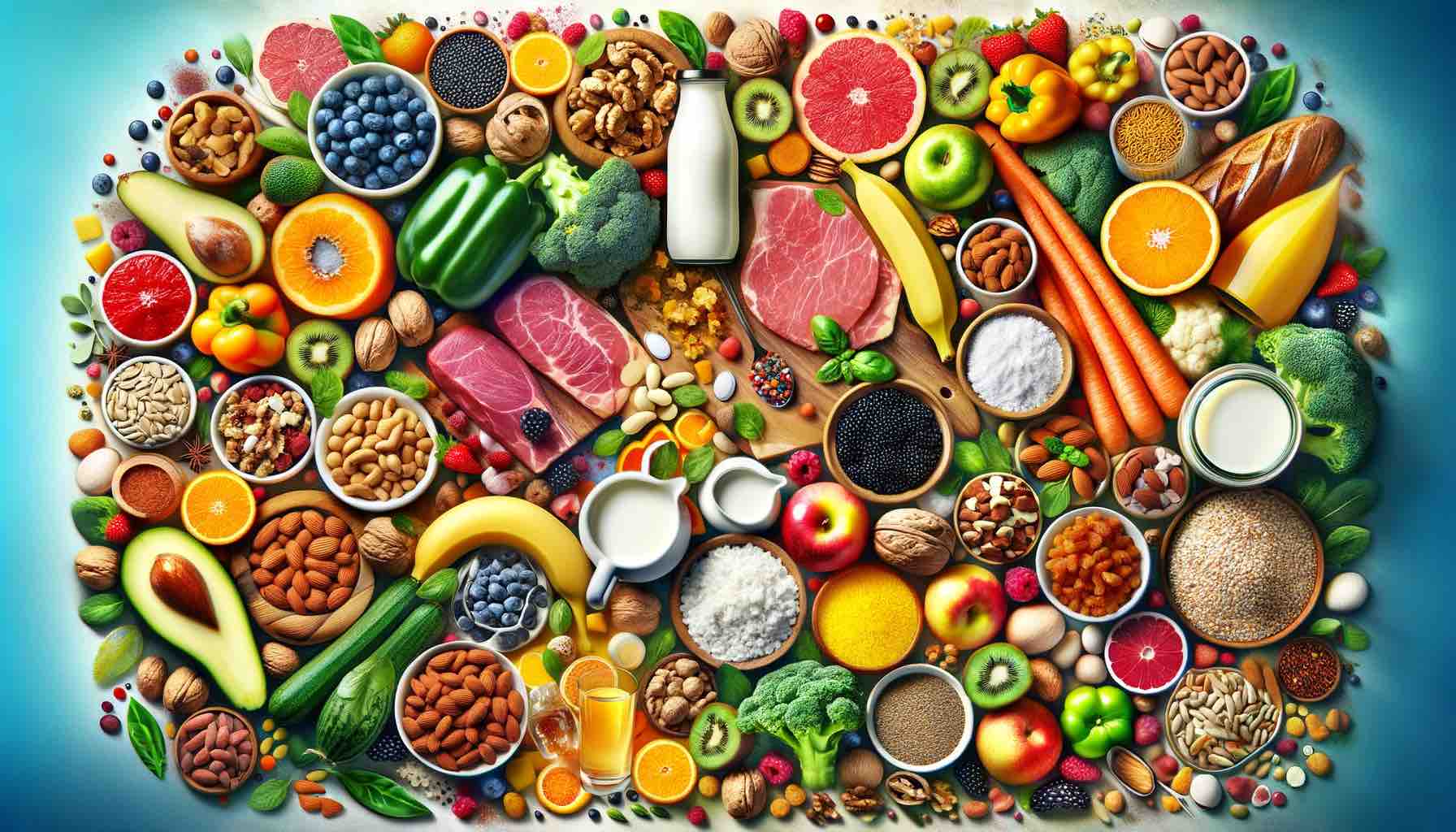
Micronutrients, comprising vitamins and minerals, are essential for your body to function properly, despite being required in smaller amounts compared to macronutrients. This detailed guide explores their importance, sources, and impacts on health.
What are Micronutrients?
Micronutrients are nutrients needed in smaller quantities but are crucial for various bodily functions. They include a range of vitamins and minerals, each playing a unique role in maintaining health.
Types of Vitamins
Vitamins are organic compounds, categorized into two types:
- Fat-soluble Vitamins: These include vitamins A, D, E, and K, stored in the body’s fatty tissues. They play roles in vision, bone health, blood coagulation, and antioxidant activities.
- Water-soluble Vitamins: This group includes the B-vitamins and vitamin C, not stored in the body and need regular replenishment. They’re vital for energy production, immune function, and iron absorption.
Essential Minerals
Minerals are inorganic elements, classified into two groups:
- Major Minerals: These include calcium, phosphorus, magnesium, sodium, potassium, chloride, and sulfur. They are essential for bone health, nerve transmission, fluid balance, and more.
- Trace Minerals: Including iron, manganese, copper, iodine, zinc, cobalt, fluoride, and selenium, these are required in smaller amounts but are vital for various bodily processes like oxygen transport, immune function, and wound healing.
Importance of Micronutrients
Micronutrients are crucial for:
- Immune Function: Vitamins A, C, D, and minerals like zinc and selenium enhance immune responses.
- Bone Health: Calcium, vitamin D, and phosphorus are fundamental for strong bones and teeth.
- Energy Production: B vitamins are critical in converting food into energy.
- Heart Health and Blood Pressure Regulation: Potassium, magnesium, and calcium play roles in cardiovascular health.
- Wound Healing and Tissue Repair: Zinc, vitamin C, and other nutrients are essential for skin health and wound healing.
Sources of Micronutrients
A diverse diet rich in fruits, vegetables, whole grains, lean proteins, and dairy products is the best way to obtain the necessary micronutrients. Supplementation might be necessary in some cases, but it’s crucial to consult a healthcare provider before starting any supplement regimen.
Micronutrient Deficiencies and Health
Deficiencies in micronutrients can lead to various health issues:
- Vitamin D Deficiency: Can lead to bone disorders like osteoporosis.
- Iron Deficiency: Causes anemia, leading to fatigue and weakened immunity.
- Iodine Deficiency: Can result in thyroid gland issues and developmental delays in children.
Tips for Maximizing Micronutrient Intake
- Eat a Rainbow: Include a variety of colored fruits and vegetables in your diet.
- Choose Whole Foods: Opt for unprocessed foods, as processing can reduce nutrient content.
- Cook Smartly: Overcooking can destroy some vitamins; opt for steaming or grilling.
For more comprehensive information on nutrition and wellness, and to join a community focused on healthy living, check out the BackOnTrack WeightLoss Challenge. This challenge offers an extensive range of reading materials and encourages participation in a holistic approach to health.
Understanding micronutrients is a key aspect of nutrition, playing a pivotal role in maintaining optimal health. By ensuring a balanced intake of these essential nutrients, you can support your body’s needs and enhance your overall well-being.
10 FAQs for “Understanding Micronutrients: The Vital Role of Vitamins and Minerals in Your Diet”
- How do micronutrients support overall health? Micronutrients are essential for immune function, bone health, energy production, and heart health, playing pivotal roles in nearly every bodily function.
- Can you get all necessary micronutrients from diet alone? A balanced diet with a variety of foods is generally sufficient to meet micronutrient needs, but certain conditions or dietary restrictions may require supplementation.
- What are the signs of micronutrient deficiencies? Symptoms can include fatigue, weak immune response, poor bone health, and in severe cases, specific conditions like anemia or osteoporosis.
- Are supplements necessary to meet micronutrient needs? Supplements can be helpful in specific situations, such as dietary restrictions or certain health conditions, but it’s important to consult with a healthcare provider first.
- Which foods are rich in vitamins and minerals? Fruits, vegetables, whole grains, lean proteins, and dairy products are excellent sources of various micronutrients.
- How can vegetarians ensure adequate micronutrient intake? Vegetarians should focus on diverse plant-based foods and consider fortified foods or supplements for nutrients predominantly found in animal products, like B12.
- What’s the difference between fat-soluble and water-soluble vitamins? Fat-soluble vitamins (A, D, E, K) are stored in body fat and require fat for absorption, whereas water-soluble vitamins (B-complex and C) are not stored and need regular replenishment.
- How does cooking affect micronutrient content in food? Some cooking methods, like boiling or overcooking, can reduce the micronutrient content in foods, especially water-soluble vitamins.
- Can you have too much of a micronutrient? Yes, excessive intake of certain micronutrients, especially through supplements, can be harmful and lead to toxicity.
- How do age and lifestyle affect micronutrient needs? Age, lifestyle, health conditions, and even medications can impact micronutrient requirements, with needs generally increasing in certain life stages or conditions.
Blog Tags for the Post
micronutrients, vitamins, minerals, nutrition, dietary health, healthy eating, food sources, nutrient deficiencies, supplement use, balanced diet








